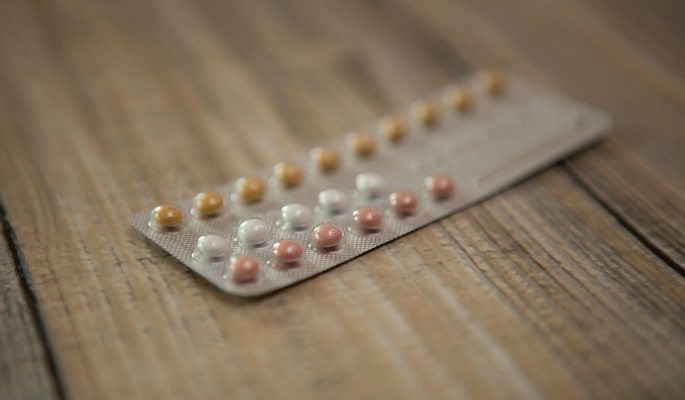"PCOS affects around 20% of women"
Many women face problems which hint towards an underlying condition that causes infertility or difficulty to conceive.
This can range from hormonal imbalances, problems with the thyroid and symptoms pointing to Endometriosis to name a few, and there are various ways to prevent or treat these symptoms.
The menstrual cycle or hormone levels are key ways of knowing when there is something wrong with the body.
Hormones are chemical messengers which impact the way cells and organs function.
Understanding them can be a difficult task. It can be very easy to blame everything from depression to diarrhoea on hormones.
Hormone levels shift at different stages of life, such as before and during a period or pregnancy.
They play an important part for the body to function, yet it is very easy not to acknowledge hormonal imbalances as a medical condition when in some, this may be the case.
We explore some common hormonal conditions and their symptoms.
Polycystic Ovary Syndrome (PCOS)
PCOS affects around 20% of women. Professionals are still trying to understand it as the condition differs for everyone and symptoms can vary.
Symptoms include:
- prolonged amount of time without coming on a period, or irregular cycles
- prominent acne
- body hair growth (hirsutism)
- weight gain
- thinning of hair on the scalp
Many of the symptoms are due to excessive secretion of androgen (male) hormones. Another cause is insulin resistance (ineffective use of insulin). This affects the ovaries by increasing androgen production, causing infertility.
Treating PCOS
The condition is incurable but treatable. It’s best to get diagnosed as soon as possible to avoid future complications, which can include heart disease, diabetes and cholesterol problems.
PCOS can cause infertility and a higher risk of miscarriages. It is different for every woman which is why the condition can be hard to diagnose. Therefore, difficulty to reproduce may not be an outcome for everyone.
Staying active is a good way to keep symptoms at bay, especially weight gain, acne and depression. Weight loss can improve mood swings and fertility. It can also reduce the risk of diabetes and cardiovascular problems.
The oral contraceptive pill can help regulate period cycles. Doctor’s advice would be needed to consider the right type of hormonal pill.
On the other hand, with a short course of tablets such as clomifene, most women with PCOS are able to get pregnant. Clomifene encourages ovulation, and if unsuccessful, the next stage may be injections or IVF treatment.
Hirsutism, or body hair growth, highly affects South Asian women. Unfortunately, there are not many solutions, apart from medicated creams, oral contraceptive pills or laser treatment. These are not effective for all women and are not likely to fully eradicate hair growth.
Speak to a doctor on how to deal with body hair. Alternatively visit Verity, a PCOS foundation.
Harnaam Kaur, otherwise known as the bearded Sikh woman, openly suffers from PCOS. After years of battling with severe hirsutism, she decided to break beauty norms and embrace her true self.
Thyroid
The thyroid is a small butterfly-shaped gland in the neck. Its main function is to produce hormones that help regulate the body’s metabolism.
Hypothyroidism is when the thyroid is under-active. It doesn’t produce enough hormones. Many of the body’s functions slow down when this happens, and can cause fatigue, depression, weight gain, prolonged periods and muscle aches.
Women may also find it difficult to conceive and have complications in pregnancy.
It is treatable with hormone replacement tablets called levothyroxine. These need to be taken daily. Women have found that this increases the chances of becoming pregnant after taking medication.
Endometriosis
Endometriosis is a disorder in which the tissue that forms the endometrium (lining of the uterus) grows on the ovaries, bowel and tissues lining the pelvis.
It occurs due to a process called retrograde menstruation. Menstrual blood flows back into the pelvic cavity instead of leaving the body.
The endometrial cells don’t leave the body properly during a period and instead embeds itself on alternative organs.
The hormonal changes of the menstrual cycle affect the misplaced endometrial tissue. This means the tissue will grow, thicken, and break down.
A woman could have endometriosis if she suffers from particular symptoms such as severely painful periods, bleeding in between cycles and pain in the lower back.
Other symptoms include exhaustion and bleeding from the rectum. The abnormal location of the growth is the reason why sufferers feel pain.
There is difficulty diagnosing this condition as symptoms are highly variable.
The main symptom is a pain usually felt between the hips to the top of the legs, but the degree of pain does not correlate with the severity of the condition.
Often women may be misdiagnosed with IBS (Irritable Bowel Syndrome). IBS causes similar bowel problems and abdominal pain.
“Staying active is a good way to keep symptoms at bay, especially weight gain, acne and depression.”
Treating Endometriosis
The condition is incurable but prescribed painkillers help manage the pain.
Hormonal pills can also block oestrogen to prevent the endometrium from growing and relieve symptoms.
Other hormonal pills put the body in an artificial pregnancy state to help with pain.

The condition is unlikely to put pregnancies at risk but infertility does often correlate with endometriosis.
Laser or an electric current during surgery can improve chances of having a successful pregnancy by removing the abnormal endometrial tissue.
Visit the support trust for those suffering from endometriosis here.
The main symptoms of hormonal imbalances to look out for include:
- fatigue
- low libido
- irregular periods
- changes in hair, nail and skin
- irregular bowel movements
There could be a hormonal imbalance if symptoms are regularly experienced.
Painful periods and pain during or after sex are another indication that there is an underlying problem, especially if this is affecting your everyday life.
Weight management and lifestyle changes can prevent infertility when trying to conceive.
There are also other measures that increase fertility, such as injecting gonadotrophins (fertility inducing hormones), IVF or ovulation monitoring and induction procedures.
Book regular gynaecologist appointments, as in many cases, if these symptoms are regular experiences, this may be an indication of an underlying problem.






























































